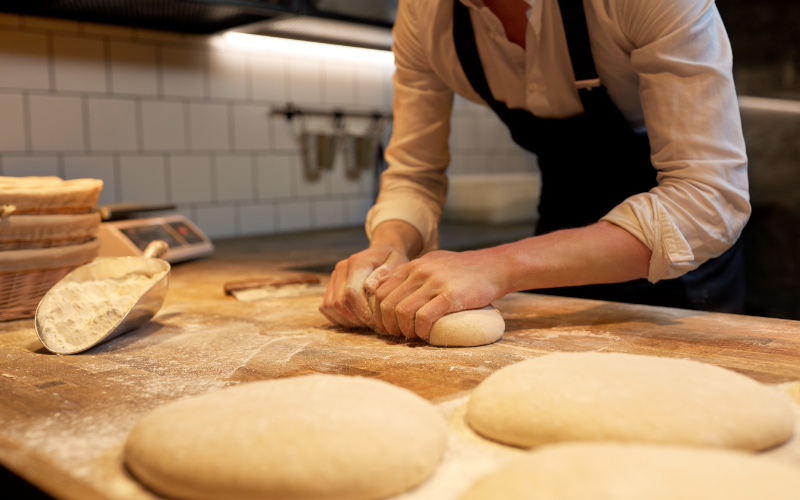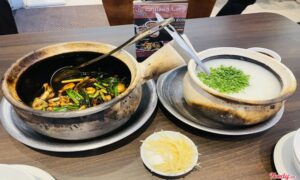
Starting a baking journey can feel exciting yet a bit daunting. Baking courses for beginners provide a comprehensive foundation, focusing on essential techniques and hands-on learning. In Singapore, options for a structured baking course enable learners to grasp the basics in a guided environment. Bread-making workshops, often included in these courses, are popular for newcomers wanting to learn step-by-step techniques while gaining confidence in the kitchen. Here’s what to expect in your first class and how to get the most out of your experience.
Understanding Baking Basics and Techniques
The introductory class in most baking courses for beginners covers fundamental techniques. Expect instructors to focus on core skills such as measuring ingredients accurately, kneading dough, and understanding baking times and temperatures. Each technique contributes to successful baking outcomes, and mastering these basics early on sets a strong foundation for future recipes. Courses often dive into specific methods that make a tangible difference in baking, like achieving the ideal dough consistency or knowing how long to proof bread for the best texture.
Bread-making workshops emphasise practical learning, with instructors guiding participants through each step. This hands-on approach, with immediate feedback, allows beginners to troubleshoot their work and understand how small adjustments affect results. Many students find this invaluable, as the tactile nature of baking is best learned through experience.
Essential Tools and Ingredients for Success
Another key focus in baking courses is the use of tools and ingredients. Knowing how to handle different baking tools, from basic items like mixing bowls to more specialised equipment, can make the baking process smoother and more enjoyable. First-time students gain insights into essential tools and how each contributes to the desired outcome. Handling baking utensils with confidence allows for more focus on technique rather than equipment uncertainty.
Baking courses in Singapore typically highlight ingredient quality as well. Understanding ingredients beyond their basic functions—such as the role of different types of flour or yeast in bread making—enables a deeper comprehension of how components interact in recipes. Courses emphasise selecting ingredients wisely, as small changes in flour type or yeast can influence taste, texture, and rise in baked goods. In a bread-making workshop, students gain hands-on experience with ingredients that bring texture and flavour together.
Baking Process: From Preparation to Presentation
Preparation is a crucial step in baking that influences the entire process. Baking courses for beginners often dedicate time to teaching this phase properly, as skipping preparation can lead to challenges later on. Expect instructors to guide students in preparing workspaces efficiently, organising tools, and following a clear sequence. With these steps, students experience less stress and more enjoyment, focusing on creating rather than troubleshooting.
Once baking begins, instructors demonstrate techniques such as mixing, proofing, and baking at the correct temperatures. Observing these processes live allows students to understand the transformations in ingredients and recognise each stage visually and by feel. Presentation also plays a part; from bread loaves to pastries, courses often cover basic methods to achieve a visually appealing result. Many students find this section helpful, as well-presented baked goods contribute to overall satisfaction with the final product.
Building Confidence in Baking
Confidence grows with each step taken in a baking course, and by the end of the first class, many beginners notice an improvement in their skills. Instructors in baking courses aim to create an encouraging environment where students feel comfortable experimenting and asking questions. Bread-making workshops, particularly, support this by allowing beginners to complete the baking process independently under guidance, building both skill and self-assurance.
Courses usually encourage beginners to continue practising what they have learned outside of class. Repeating recipes at home helps reinforce techniques, making them second nature over time. This practice builds familiarity, turning once-challenging tasks into enjoyable activities. Gaining confidence early on also encourages students to attempt more complex recipes, expanding their baking repertoire as they progress.
Final Thoughts and Next Steps
Starting a baking course can be an enriching experience. Baking courses for beginners in Singapore, including bread-making workshops, introduce fundamental techniques, essential tools, and the confidence to create delicious baked goods from scratch. By understanding each stage, from preparation to presentation, beginners find joy in the process and the results.
Ready to embark on your baking journey? Visit Bespoke Bread for a comprehensive baking course in Singapore and take your first steps into the world of baking with expert guidance.




